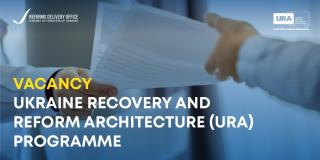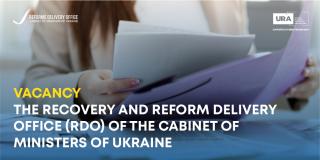We, the Members of the Ukraine Donor Platform Steering Committee, met in Rome on October 9 to support Ukraine’s immediate and long-term financing needs. We welcomed Denmark, which has just joined our Platform as a temporary member, and Luxembourg, which has joined as an Observer1. We stressed our continued and unwavering support for Ukraine and remain united in condemning Russia’s illegal and unjustifiable war of aggression, including ongoing attacks against its population and critical infrastructure. Consistent with the September 25, 2024 G7+ Joint Declaration of Support for Recovery and Reconstruction of Ukraine, the Platform continues to provide a channel for assistance coordination to ensure donors are meeting Ukraine’s highest priority short-term financing needs to preserve macroeconomic and financial stability, while also addressing urgent and long-term recovery and reconstruction priorities. We seek to make meaningful contributions to Ukraine’s resilience, reconstruction and development as a prosperous and modernized economy with strong democratic institutions, the rule of law, and anti-corruption measures, especially anchored in the EU accession process.
We recognized the importance of addressing Ukraine’s external financing needs. As of the end of September 2024, budget support for Ukraine provided by all donors since 2022 totalled more than 98 billion USD. Ukraine’s total yearly external budget financing needs for 2024 and 2025 will amount to 41.3 billion USD and 38.4 billion USD respectively. Through our joint efforts, we expect to close the external financing gap for 2024 and we continue to assess how to meet emerging additional budget needs caused by Russia’s ongoing aggression.
We underscored the importance of G7 members’ ongoing joint work to fulfil the collective commitment made at the June 2024 Summit in Apulia to launch Extraordinary Revenue Acceleration (ERA) loans for Ukraine - of approximately 50 billion USD – by the end of the year, including on the European Commission’s proposal for a Ukraine Loan Cooperation Mechanism and exceptional Macro-Financial Assistance as the EU's contribution to the ERA loans. These are intended to be disbursed through multiple channels that direct the funds to Ukraine’s military, budget, and reconstruction needs.
We took note of the Prime Minister of Ukraine’s top funding priorities for this winter, including energy supply and heating, protection of critical energy infrastructure, response to the water supply crisis in the south of Ukraine and measures to address housing needs. We also noted the critical importance of close cooperation across the humanitarian-recovery nexus to address in a comprehensive manner the short-term priority responses and longer- term strategic planning.
We strongly condemned Russia’s continuing attacks on Ukraine’s energy infrastructure, which have escalated since March 2024, and reiterated our call of accountability for all international crimes committed in and against Ukraine. We reaffirmed our commitment to support Ukraine through the coming winter and beyond, recognizing that Russia’s brutal and unjust attacks have created power deficits that threaten access to critical services including electricity, heat, and water. As part of the G7+ energy coordination group we have committed and pledged over 2 billion USD in additional financing since March 2024, including over 1 billion USD in new pledges since the June 2024 Berlin Ukraine Recovery Conference. Working with our Ukrainian partners, this financial and in-kind assistance is addressing the most urgent energy sector needs, including repairs of damaged power plants and district heating systems, deployment of new, distributed power generation, emergency backup power for critical services, and passive protection for energy infrastructure. We called on global partners to do even more to support these priorities, which are essential to Ukraine’s vision of a more decentralized, diversified, resilient, and renewable/sustainable energy system that is fully integrated with the European Union. We noted the importance of insurance as a component of investments in critical infrastructure in a wartime context.
We reiterated the importance of sound public financial management, including as one of the fundamental elements for Ukraine’s successful recovery, reconstruction and EU accession path. In this context, we noted Ukraine’s substantial progress on the implementation of a Public Investment Management Roadmap. In particular, we welcomed the Strategic Investment Council’s prioritization of public investment projects within the pilot Single Project Pipeline (SPP) for 2025, a mechanism important to ensure the effectiveness, transparency and accountability of Ukraine’s investment policy. We also recognized the Government of Ukraine’s openness to draw lessons from this pilot phase to inform the future SPP. We welcomed the jointly proposed concept for a Framework for Project Preparation for Ukraine, specifically to include moving ahead on two Project Preparation Facilities to boost Ukraine’s ability to prepare and implement projects: the Ukraine PPF, to be administered by the Government of Ukraine with support from the World Bank, and Ukraine FIRST, to be administered by the EIB and EBRD. We welcome the announced, and look forward to future, donor contributions in support of the facilities. We called for the swift implementation of the concept, including developing clear eligibility criteria for routing projects to specific facilities. An important element will be a Project Preparation Unit, firmly embedded in the Public Investment Management system, and engaging with regions and local communities. This system should ensure effective coordination among existing and future Project Preparation Facilities, taking into account Ukraine’s EU accession path. We acknowledged the progress made in developing interministerial coordination within the Public Investment Management system, and reaffirmed our commitment to effective, transparent and well-coordinated strategic investment planning, including with the involvement of local communities. We also underlined the importance of the next exercise to update the Rapid Damage and Needs Assessment, which will meaningfully inform the preparation of the SPP.
We welcomed Ukraine’s strong and continuing progress on reforms, notably those set out within the Ukraine Plan. These are central to Ukraine’s EU accession path and to improving the business climate. Members also welcomed the Government of Ukraine’s update of the Reforms Matrix as a public tool for accountability, transparency, and stakeholder coordination, as well as the update on conditionalities. We appreciated the Government’s report on actions taken and reiterated donor support for Ukraine as it continues to implement reforms. Continued progress in these areas, to include rule of law, anti- corruption, enhancements to corporate governance for state-owned enterprises, and adherence to OECD legal instruments and recommendations will create a solid basis for sustainable and inclusive economic growth and foster private sector investment.
We commended the re-launching of Kyiv-based Sector Working Groups, which provide a Government of Ukraine-led in-country coordination structure to complement the Ukraine Donor Platform’s work. This mechanism contributes to donors’ ability to collectively and effectively support Ukraine's priorities, including in advancing its ambitious reform agenda, while ensuring that efforts are aligned, complementary, and avoid duplication.
We also commited to start laying the groundwork for galvanizing support to the Platform’s operation on the ground, including by increasing its presence and capabilities in Kyiv.
We emphasized the importance of stakeholder engagement in Ukraine’s recovery and reconstruction. We welcomed hearing from the Business Advisory Council on their first set of advice and sectoral recommendations and look forward to further dialogue with them and with the Government of Ukraine on how to take these forward. We also recognized the important role of Ukraine’s active civil society and its role in fostering an inclusive, gender- responsive, and effective recovery. We committed to strengthening the Ukraine Donor Platform’s regular engagement with civil society and specifically welcomed the Government of Ukraine’s proposal for this.
Finally, we welcomed Italy’s presentation of its ideas for the next Ukraine Recovery Conference (URC), to be held in Rome in July 2025, building upon the dimensions addressed at the 2024 URC, held in June in Berlin. We also committed to explore the opportunity of holding a ministerial meeting during the Conference.



